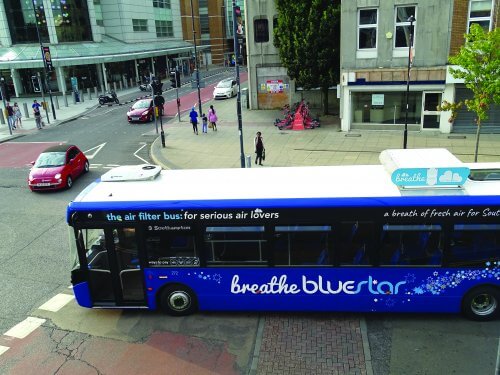The Go-Ahead Group has announced that its emissions reduction targets have been approved by the Science Based Targets initiative (SBTi) as consistent with levels required to meet the goals of the Paris Agreement.
In a climate change strategy published last month, Go-Ahead announced that it intends to lead the UK transport industry in carbon reduction by achieving a 75% cut in emissions by 2035, and by becoming a fully carbon neutral company by 2045.
This will involve a wholesale shift in technology, including converting the group’s fleet of 5,000 buses to zero-emission vehicles and decarbonising rail services. Work is underway across the group to reduce water usage significantly, improve energy efficiency and to recycle more waste.
The SBTi has certified that targets covering greenhouse gas emissions from Go-Ahead’s operations are consistent with reductions required to keep warming to 1.5°C, which the latest climate science has told us is needed to prevent the most damaging effects of climate change.
Earlier this year, Go-Ahead signed the Business Ambition for 1.5°C commitment letter, pledging to align its climate mitigation targets with the aims of the Paris Agreement. To date, 695 companies globally have signed this letter.
A global body, the SBTi is a collaboration between the CDP, the United Nations Global Compact, World Resources Institute (WRI) and the World Wide Fund for Nature (WWF). It defines and promotes best practice in science-based target setting and independently assesses companies’ targets.
Heidi Huusko, Senior Manager, Environment and Climate, at the United Nations Global Compact, one of the Science Based Targets initiative partners, said: “We congratulate Go-Ahead Group on setting science-based targets consistent with limiting warming to 1.5°C, the most ambitious goal of the Paris Agreement. By setting ambitious science-based targets grounded in climate science, Go-Ahead is taking action to prevent the most damaging effects of climate change.”
Mark Anderson, Go-Ahead’s Interim Customer and Commercial Director, said: “As a transport operator, we recognise our responsibility to decarbonise our business and we’ve set out an ambitious, but deliverable, timetable to do so. Our actions are only part of the picture though – to truly tackle the climate emergency, it’s vital that travel habits change and that people leave their cars at home in favour of walking, cycling or public transport.”
Since 2016, Go-Ahead has already achieved a 22% reduction in carbon emissions in spite of international expansion of the company.


